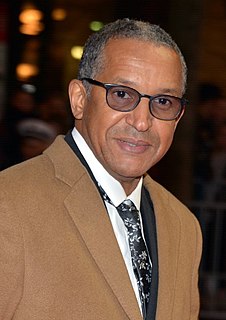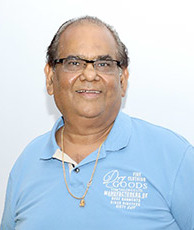A Quote by Timothy Greenfield-Sanders
I left film because I felt that photography was my art. It was something I could do on my own, whereas film was so collaborative. I thought as a photographer I could make something that was artistic and that was mine, and I liked that. And it wasn't until I got back into film and I have very small crews and I could do very tiny filmmaking that wasn't 100 people that I still felt that I was making something artistic as a filmmaker. So, you know, I'm an artist, and whether it's photography or film, I want my voice to be there and I think my voice is very strong in this film.
Related Quotes
I always felt that with an Antoine Doinel film, Truffaut was taking a vacation, that Francois could relax when making a Doinel film. All of the language came to him very easily. 'The 400 Blows,' I felt, was a collage of all his childhood experiences. Every time he felt an Antoine Doinel film was necessary, he'd make one.
I did photography in summer camp; I did it in high school. The only hard decision I've had to make was whether to go towards photo or film. And I ultimately realized that the type of photo I was interested in was actually photojournalism. And it's a very individualist career, whereas film is a very team-driven medium. So that's why I chose film.
There is something that might be called cinematic beauty. It can only be expressed in a film, and it must be present for that film to be a moving work. When it is very well expressed, one experiences a particularly deep emotion while watching that film. I believe that it is this quality that draws people to come and see a film, and that it is the hope of attaining this quality that inspires the filmmaker to make his film in the first place.
I wanted to be a playwright in college. That's what I was interested in and that's what I was moving toward, and then I had the lucky accident of falling in love with film. I was 19 or 20 that I realized films are made by people. Shooting digitally became cheaper and better. You couldn't make something that looked like a Hollywood film, but you could make something through which you could work out ideas. I was acting, but I was also conceiving the plots and operating the camera when I wasn't onscreen. I got very unvain about film acting, and it became a sort of graduate school for me.
I'm not trying to be self-serving, but you know, you get to Hollywood, and if you want to make something big and loud and dumb, it's pretty easy. It's very hard to go down there and make a film like 'Sideways,' which I thought was a great film. They don't want to make films like that anymore, even though that film was very successful.
You know, with the film industry crews, there's an odd mix between a very technical and a very artistic approach to the work, and sometimes as a woman you have to be a little bit careful about how things come out because people don't really want to listen if it's in a certain emotional tone or too strong.
I went to art school, wanting to be a painter and then I got into photography. Then it was movies, and I liked the images. One of the things that interested me in film was that I was communicating in images. That was something I did intuitively and could not even talk about until I started having to do interviews.
I thought I should try something relatively inexpensive, relatively contained, relatively small. I started working on a feature, a film I'd still like to make: a very talky film of people and ideas about our contemporary state with regard to relationships, marriage, sex, and romance. I started trying to educate myself about filmmaking.




































